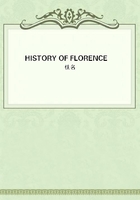
第170章
Nor should we ever be able to conduct the affairs of this republic, if you did not contribute to our support. Therefore, I know not the reason of their hatred toward us, or what just cause they have of envy. Let them direct their enmity against their own ancestors, who, by their pride and avarice, lost the reputation which ours, by very opposite conduct, were enabled to acquire. But let it be granted we have greatly injured them, and that they are justified in seeking our ruin; why do they come and take possession of the palace? Why enter into league with the pope and the king, against the liberties of this republic? Why break the long-continued peace of Italy? They have no excuse for this; they ought to confine their vengeance to those who do them wrong, and not confound private animosities with public grievances. Hence it is that since their defeat our misfortune is the greater; for on their account the pope and the king make war upon us, and this war, they say, is directed against my family and myself. And would to God that this were true; then the remedy would be sure and unfailing, for I would not be so base a citizen as to prefer my own safety to yours; I would at once resolve to ensure your security, even though my own destruction were the immediate and inevitable consequence. But as the wrongs committed by princes are usually concealed under some less offensive covering, they have adopted this plea to hide their more abominable purpose. If, however, you think otherwise, I am in your hands; it is with you to do with me what you please. You are my fathers, my protectors, and whatever you command me to do I will perform most willingly; nor will I ever refuse, when you find occasion to require it, to close the war with my own blood which was commenced with that of my brother." While Lorenzo spoke, the citizens were unable to refrain from tears, and the sympathy with which he had been heard was extended to their reply, delivered by one of them in the name of the rest, who said that the city acknowledged many advantages derived from the good qualities of himself and his family; and encouraged them to hope that with as much promptitude as they had used in his defense, and in avenging his brother's death, they would secure to him his influence in the government, which he should never lose while they retained possession of the country. And that their deeds might correspond with their words, they immediately appointed a number of armed men, as a guard for the security of his person against domestic enemies.
CHAPTER III
The Florentines prepare for war against the pope--They appeal to a future council--Papal and Neapolitan movements against the Florentines--The Venetians refuse to assist the Florentines--Disturbances in Milan--Genoa revolts from the duke--Futile endeavors to effect peace with the pope--The Florentines repulse their enemies from the territory of Pisa--They attack the papal states--The papal forces routed upon the borders of the Lake of Perugia.
The Florentines now prepared for war, by raising money and collecting as large a force as possible. Being in league with the duke of Milan and the Venetians, they applied to both for assistance. As the pope had proved himself a wolf rather than a shepherd, to avoid being devoured under false accusations, they justified their cause with all available arguments, and filled Italy with accounts of the treachery practiced against their government, exposing the impiety and injustice of the pontiff, and assured the world that the pontificate which he had wickedly attained, he would as impiously fill; for he had sent those whom he had advanced to the highest order of prelacy, in the company of traitors and parricides, to commit the most horrid treachery in the church in the midst of divine service and during the celebration of the holy sacrament, and that then, having failed to murder the citizens, change the government, and plunder the city, according to his intention, he had suspended the performance of all religious offices, and injuriously menaced and injured the republic with pontifical maledictions. But if God was just, and violence was offensive to him, he would be displeased with that of his viceregent, and allow his injured people who were not admitted to communion with the latter, to offer up their prayers to himself. The Florentines, therefore, instead of receiving or obeying the interdict, compelled the priests to perform divine service, assembled a council in Florence of all the Tuscan prelates under their jurisdiction, and appealed against the injuries suffered from the pontiff to a future general council.
The pope did not neglect to assign reasons in his own justification, and maintained it was the duty of a pontiff to suppress tyranny, depress the wicked, and exalt the good; and that this ought to be done by every available means; but that secular princes had no right to detain cardinals, hang bishops, murder, mangle, and drag about the bodies of priests, destroying without distinction the innocent with the guilty.